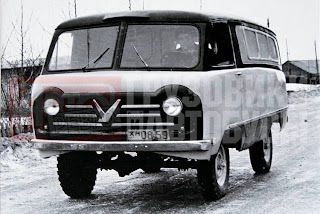Vesna, Krasnа, Nasho
ladushka prishla!!!
Spring, Beauty, our
darling has arrived!
These lines come from an
operetta by Tchaikovsky which we sang during “maslenitsa”, a week long
pancake-fest which marks, simultaneously, the beginning of Lent and the ‘end’
of winter. This was in mid-February, when there was still a few feet of snow
and the temperature still hadn’t climbed above -5. So it felt a bit premature.
Two months on, something
has arrived, but there’s nothing beautiful about it. About 10 days ago, a
fundamental change took place. The sun, which for 3 months had cheerfully
glinted off icicles and glistened on virgin snow, decided that enough was
enough, and turned up the heat. Mercury in thermometers across Karelia slid
above zero, and the frozen world began to be unlocked.
Petrozavodsk, usually a
wet place, is even wetter than normal as hundreds of tonnes of snow melt away.
Snowmelt has carved canyons in the thick layers of rock solid ice which cloaks
the city’s pavements and yards. As the ice recedes, new additions to
Petrozavodsk’s already abundant collection of potholes become visible, and
quickly fill with water. It’s wise to stand well back from the edge of the road
when waiting to cross, unless you don’t mind being sprayed from head to toe by
filthy meltwater. And it really is filthy. When you think ice melt, you tend to
imagine dazzling blue rivers tumbling down mountains and along majestic glacial
valleys. But that ice comes from pristine alpine glaciers. As this ice melts,
it releases 4 months of accumulated dirt, grit and sand. Lovely…
Away from the roads and
pavements, the snow is doing it’s best to withstand the sun’s 16 hour daily
onslaught (these Northern days are already as long as British days in late
May). Instead of just melting away quietly, it has to pass through the kasha (porridge) phase. Walking through
it is pretty grim, but driving in it is worse. This weekend I was 3 hours north
of Petrozavodsk in a little town called Pindushi, where there is even more snow
and little effort is made to shift it. The yard, where we tried to park the
car, is now like a tennis court size bowl of mushy porridge, and the thick
rock-ice covering the road is cut through by deep ruts and holes, leaving
drivers to choose between slipping around on the slushy but generally flat
raised bits or braving the ruts and being unable to avoid any pot holes which
block your path. When roads cross, everything gets very confused as converging
ruts and lumps of ice combine to form a suspension-killing assault course.
All things considered,
this might not have been the time to try driving abroad for the first time. But
loving a challenge, I asked if I might have a turn behind the wheel (the
insurance policy covers all licensed drivers, so I did nothing illegal!). It
quite quickly became clear that this was not a great idea. From the unfamiliar
surroundings of left-hand drive, I struggled to gauge where my wheels and where
the side of the car was. To add to this, I had to get used to controlling the
clutch on the sort of road British mountain-bikers would tackle with pleasure,
and which no-one in their right mind would take their 2-wheel drive saloon on.
Needless to say, I didn’t
do very well. If I tried to stay out of the ruts, I hit the snow drift at the
side of the road. If I went in the ruts, I slid around and thumped through pot
holes. My every move seemed to draw shrieks from my passengers, who were
wondering why on earth they’d let me behind the wheel of their new car. Their
patience didn’t last long, and after a painful 500 metres or so (for
car and passengers) I pulled over and returned to the passenger’s seat, where I
plan to stay put for the foreseeable future.
I fear that my little
adventure lost me any authority I previously had to offer driving tips, but I
gained even more respect for Russian drivers, who battle daily against snow,
ice, puddles, potholes, marking-free roads, temperamental (and, until recently,
corrupt) traffic cops and vehicles which should have been taken off the road
years ago.
Talking of which, I’ve
found myself a new favourite car here. The UAZ Buhanka (Loaf) has the friendly
headlights and endearing loaf-of-bread shape of the VW Hippy Van, but it’s
built like a Land-Rover, with 4 wheel drive, massive clearance and the same
chassis as a jeep built by the same company. When I tell Russians of my love,
and my dream of buying an old, Soviet model, painting it and driving it home to
England they think I’m out of my mind. They tell me its uncomfortable. They
tell me its unreliable. But if it can survive rural Russian roads in Spring,
then I’m sure it can handle anything Britain can throw at it (except maybe the
MOT…)
 |
| The original Soviet Union Buhanka |
 |
| Modern day Russian post van. Unstoppable... |
 |
| The hippy version... imagine a few surf boards on the roof... |
